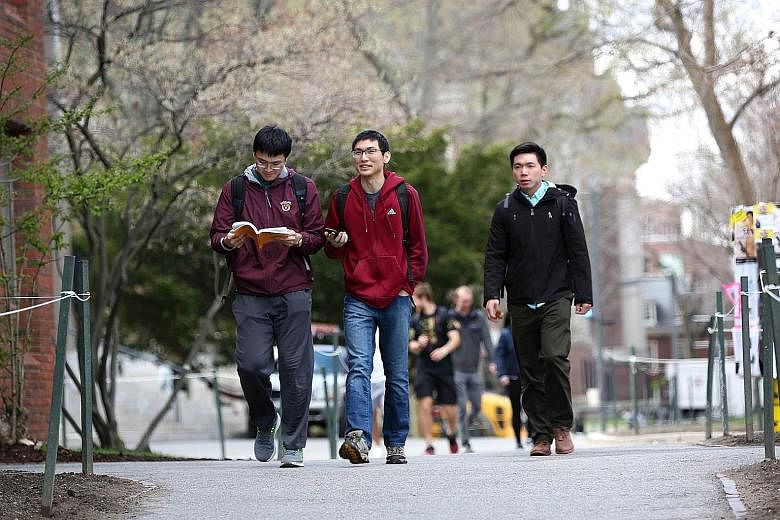WASHINGTON • The US Justice Department has lent its support to students who are suing Harvard University over affirmative action policies that they say discriminate against Asian-Americans, in a case that could have far-reaching consequences in college admissions.
In a statement of interest, the department supported the claims of the plaintiffs, a group of Asian-Americans rejected by Harvard. They contend that Harvard has systematically discriminated against them by artificially capping the number of qualified Asian-Americans it accepts to advance less qualified students of other races.
"Harvard has failed to carry its demanding burden to show that its use of race does not inflict unlawful racial discrimination on Asian-Americans," the Justice Department (DOJ) said in its filing.
The filing said Harvard "uses a vague 'personal rating' that harms Asian-American applicants' chances for admission and may be infected with racial bias; engages in unlawful racial balancing; and has never seriously considered race-neutral alternatives in its more than 45 years of using race to make admissions decisions".
In the past few years, the anti-affirmative action cause has been joined by Asian-Americans who argue that they are being held to a higher standard, losing out on coveted slots at places such as Harvard as African-Americans, Latinos and other groups get a boost.
A handful of states ban public universities from relying on affirmative action, pushing some towards a model that takes socioeconomic factors into account instead of race.
Public universities in California and Washington have tried to engineer class-based diversity, believing that giving a lift to lower-income students will end up bringing in more minority students as well.
But these methods have not produced classes with an ethnic makeup that mirrors that of the states where they have been used, and many selective private universities continue to admit students partly on the basis of race.
Now, universities that factor race into admissions have found a powerful new opponent in the Trump administration, which argued in its filing on Thursday that the court should deny Harvard's request to dismiss the case before trial.
The government said Supreme Court rulings require universities considering race in admissions to meet several standards. They must define their diversity-related goals and show that they cannot meet those goals without using race as a factor in admissions decisions.
The DOJ argued that Harvard does not adequately explain how race factors into its admissions decisions, leaving open the possibility that the university is going beyond what the law allows.
Harvard said it was "deeply disappointed" but not surprised "given the highly irregular investigation the DOJ has engaged in thus far".
It said: "Harvard does not discriminate against applicants from any group, and will continue to vigorously defend the legal right of every college and university to consider race as one factor among many in... admissions, which the Supreme Court has consistently upheld for more than 40 years."
NYTIMES

